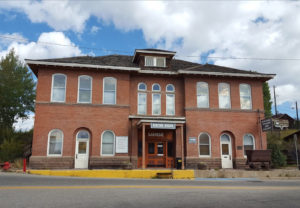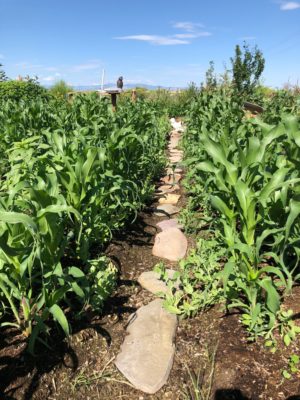By Jennifer Welch
After reading the title to this story, you might assume that it is about winning the lottery or waking the dead. In fact, it is not. It is quite the opposite. It is about losing the lottery. It is about saying goodbye to the living, and leaving the dead where they lie.
Exactly four years ago, on a Sunday, one of my horses started to spit out random wads of hay. He also had a slight runny nose with a clear discharge. I had worked him just the day before, nothing hard or exhaustive, just a normal day for a pleasure horse. The following morning, on Monday, I noticed that the discharge from his right nostril looked green and profuse. I took his temperature, 100.8, prior to calling the vet. Little did I know, this was the beginning of a very long week – a week that would not end well.
Imperial Alexander the Great, or Alex as he was known around the barn, was rescued as a youngster from a situation where he was not being cared for properly. He was young and thin when Elizabeth found him in Kansas and brought him home to her farm, Imperial Drafts and Drums. He had been bred with intention, half Friesian and half Shire. For some reason, the breeders were unable to care for him properly and he found a home with the lovely Elizabeth. At some point during his stay at Imperial Drafts and Drums, he impaled his right breast on a T-post, leaving a huge gash. His spirit never broke during this ordeal and he was cared for and nursed back to health by the patient Elizabeth. She noticed right away that even after a starvation situation and a gnarly wound, his trust in people never subsided. This was true to his final day.
When Leslie, our vet, arrived to look at Alex, I told her the symptoms he was having as we walked into his stall. After a brief examination she asked me if he had choked. I replied that I wasn’t aware of any choke or episode in which he had choked. There was no obvious bolus of feed in his throatlatch or neck, so she began to wonder if he had the flu or perhaps a pharyngitis. She treated him with some Banamine, Dex, and a tranquilizer to relax him and his neck in case he had something lodged in there. We spoke about the necessary monitoring and when to call if he had not improved. I felt confident we were dealing with something viral that we would just have to wait out. I couldn’t have been more wrong.
[InContentAdTwo]
When I drove out to Nebraska to look at Alexander, I was nervous and cautious. I had never purchased a green horse before, nor had I ever driven so far to consider one. To be honest, I left Colorado with a near certainty that I would be returning with a horse. I had spent weeks talking with Elizabeth, watching current videos of Alexander’s movement and behavior, and considering all of my other options. None of these things affected my confidence. The single thing that both created and sustained my belief in this animal was a simple photo – a photo of his eye. You can look into a horse’s eye and know many things about him. Is he kind? Is he pensive? Does he trust you? When I arrived in Nebraska to meet Alexander for the first time, I knew everything there was to know in seconds. In less than two hours I was pulling him in my trailer, Colorado bound.
On Tuesday, I didn’t notice much of a change in Alex. He still had no fever, a good appetite, and heavy nasal discharge, now out of both nostrils. I gave him a dose of Banamine and waited until the following morning to see how he was faring. Wednesday morning, I noticed a cough/blow along with his morning meal. Even though we had been soaking his hay, he seemed to be having a hard time getting it down. I also looked closely at the nasal discharge and found that the green color was due to hay particles in his mucus. I immediately called Leslie to let her know that I thought Alex should be seen soon. She managed to make it out that afternoon and I explained to her that I didn’t think he had the flu or pharyngitis. She agreed. She believed he was suffering from choke and that I should have him looked at right away. I asked her if she wanted to pass a tube and she said no. She told me to get him into the University or the hospital in Littleton, she didn’t want to risk rupturing his esophagus by passing a tube blindly. We made the appointment for the following morning. Leslie followed up our appointment by explaining that choke was a very serious condition which was almost always followed by aspiration pneumonia, an equally serious condition. She then walked over to look at our two week old piglets, new life at its beginning. I had seen her do this once before when my lead dairy cow was dying from acidosis. My heart sank.
Bringing Alexander home was very exciting for me. As a mother of three who spent most of her time homeschooling kids and running a small, diverse farm, this was guaranteed to be a project I could enjoy. I had never worked with a green horse before, and Alexander was a growing three-year-old with a small amount of training in him. He immediately became friends with our one-eyed Haflinger, Yak. They were the only two horses on a farm full of beef cows, dairy cows, dairy goats, pigs, chickens and turkeys. They were also the only two animals that didn’t produce something we would eventually consume or sell to be consumed. No, Alexander was a buddy. A sweet, good-natured companion. A pleasure horse for our family and friends. A solid, trustworthy, smooth-gaited hayburner. His job was to be big and happy and beautiful. He was so very good at it.
Thursday morning, I loaded Alex into the trailer bright and early. Even though we had switched him over to a runny mash of Equine Sr., his food was still pouring out of his nostrils when he ate. I pulled out of the driveway hopeful that I would be bringing him home with me. We were expecting a visit from my parents over the weekend. My daughter’s eighth birthday was coming up and they had planned to fly out to celebrate with us – a horse-themed party. My parents were to arrive Thursday afternoon and we planned to celebrate Friday evening. We had already purchased a new saddle and grooming kit to go along with letting Maya, my daughter, be the sole caretaker for Yak. The plan was for her to learn how to care for a horse of her own before we bought one for her. If the day went well, I would roll back into the valley with Alex in tow just as my parents were arriving for the festivities. I knew I would be tied up with caring for a sick horse, but that seemed apt for a weekend celebrating girls and their horses.
Working with Alexander was well-suited to a beginner like me. I have been around horses since I was four, and have been riding just as long. But as far as getting a horse under-saddle from the ground up, I was a baby. Alexander was patient and kind, smart and inquisitive, pensive and quiet. He still behaved like a youngster at times, jumping three feet in the air at the squirt of the fly spray bottle or prancing around on a cold, winter morning. But for the most part, he was content to teach me how to teach him, allowing me to make mistakes and correct myself before completing a task and moving on to the next. He was a gracious partner who was never pushy or demanding, even though he must have been bored at my pace. We developed a bond I have not felt with many beings. I felt pride and accomplishment just to know that I had found a friend that I could grow old with – we didn’t have to be flashy or fancy, rich or well-adorned. All we needed was to wake up each morning knowing that we would see each other throughout the day, making sure we each had what we needed to get through that day, stopping often for scritches and hugs, conversations and reflection.
When we arrived at the Littleton Equine Center, Alex waited patiently on the trailer for our appointment. I could tell he was nervous and a bit tired from the long drive over the mountain passes and down into the plains. When it was time to pull him off the trailer, he backed slowly out into my arms. As he turned to face the entrance into the exam room, he quivered in his shoulder. We walked slowly towards the double doors which lead into the room where he would have an endoscopy performed to determine the cause of his symptoms. He refused to walk over the wet puddles in the concrete – it had been over a year since he had experienced asphalt or concrete and he didn’t know if he liked it. He entered the room and walked into the stand, unsure if he wanted to be there but trusting my judgment along the way. As the tranquilizer began to kick in, I handed the lead line over to the vet techs and stood back to make room for the vet. Dr. Devine walked into the room sporting a waxed handlebar mustache and clean flannel shirt. He spoke a few words before he was off to get his supplies, the most important of which was a pair of coveralls. Alex blew another round of mucus out of his nostrils and into the faces of the present parties. I had learned to keep a terry cloth rag handy for just such an event, and was wiping my face as Dr. Devine reentered the room.
I hadn’t sat on Alexander yet. We were getting very close to being under-saddle, but had a minor setback over a recent visit from the farrier. In the round pen, Alex had performed every task I asked of him. He had been sacked out, long-lined, worked over. But when the farrier came out and we were outside of the round pen and away from his buddy Yak, Alexander seemed to think he was no longer under any obligation to behave. He danced around to show that not only was he bigger than us, but that he didn’t have to do what we wanted. The afternoon ended fine, he got his feet trimmed and the farrier was no worse for the wear. But it made me think that I should reinforce our training that we had accomplished inside the round pen, outside of the round pen again, just for good measure. He didn’t fuss or fight when I reintroduced the same ideas in a different setting over and over again. In fact, he seemed to pay more attention without the barriers of a round pen because the situation was demanding it of him. His movements were more open and free because his environment was open and free. I could sense what it would be like to ride him for the first time, and for a lifetime after that. He responded well to all of my cues and was ready for the saddle. He was ready for me to be in the saddle and I was ready for it too. This was determined the day before he started spitting out boluses of hay.
To be continued ….
Jen Welch lives and writes in the Upper Arkansas River Valley and is still a horse girl through and through.



